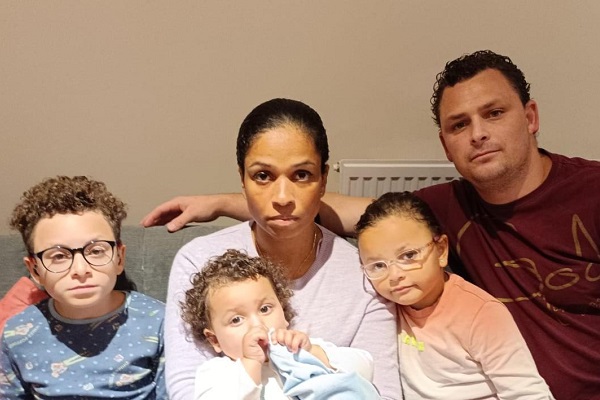Housing association previously censured by regulator over short-term tenancies imposing ‘no-fault’ eviction on family
A housing association censured by the regulator four years ago for offering tenants short-term tenancies “with no rationale” is evicting a family from their home in west London despite branding them “good” tenants, documents seen by Inside Housing reveal.
Kinsman Housing was criticised in a November 2018 regulatory notice which mentioned, among other issues, it had “acquired [homes] from large registered providers… on the basis of continued social housing use” that were then “sold on the open market shortly after acquisition with all proceeds from the sale, including any capital uplift, going directly to [an] investor”.
It also raised concerns about the landlord’s use of assured shorthold tenancies for its residents. These are short term and offer no protection against eviction at the end of the tenancy.
Four years on from this report, Inside Housing has seen documents that reveal a family of five housed in Westminster are being evicted by the landlord at the end of a short-term tenancy despite having no rent arrears or any other problems.
The family has a young baby and a child with special educational needs. They face homelessness as a result of the eviction.
The November 2018 report said: “Kinsman issues two-year assured shorthold tenancies to its tenants with no rationale given for this and with the stated aim that their accommodation is not permanent.”
It added that the landlord “cannot provide evidence that it has complied with its own allocation policy” or “that this policy is in line with its purpose or compliant with regulatory expectations”.
Damaris Fabris and her family moved into a Kinsman flat in Chiltern House, Westminster in late 2018 on an intermediate tenancy.
At the time, she believed they were being offered a ‘starter’ tenancy, effectively a trial period that would convert into an assured tenancy with long-term security, providing the rent was paid and there were no issues.
The family was given a “guide to your new home”, which said Kinsman hoped they would “enjoy many happy years in your new residence”.
The family found a school place for their children, expecting to stay in the area long term.
But at the end of the initial 12-month period, Kinsman offered a one-year extension, which was further extended by six months.
The organisation has now ordered the family to leave at the end of the current tenancy, sending a notice for possession which told the family to leave by 9 October or face eviction procedures.
In emails seen by Inside Housing, the landlord blamed the eviction on increased homelessness during the pandemic.
The email to Ms Fabris said: “It goes without saying that you have been a good tenant over the course of the last two years but we are a regulated body and must act in accordance with housing allocations policy.”
But when Inside Housing contacted Westminster City Council, the borough said it was “not seeking to have this household moved from their current accommodation, as they remain eligible for intermediate housing”. The council added that the eviction was “wholly a Kinsman decision”.
“Officers have stressed to Kinsman on several occasions that these 12-month tenancies should be allowed to run on where the sitting tenant continues to remain eligible for intermediate housing and have complied with their tenancy conditions,” said Liza Begum, cabinet member for housing services at Westminster.
“Officers recently met Kinsman to discuss this case and, unfortunately, they would not agree to any further renewal periods.
“Following this meeting, we have written to the chair of Kinsman to restate the council’s support for the renewal of intermediate tenancies for those that remain eligible. Kinsman’s argument is that intermediate rented housing is a short-term solution allowing residents to have a period of lower rents before moving on to other housing.”
Legal experts contacted by Inside Housing said the eviction was technically legal, due to the terms of the assured shorthold tenancy, but highly unusual in social housing, where tenants are usually offered renewals unless there are issues such as anti-social behaviour or rent arrears.
Ms Fabris told Inside Housing: “We have never been behind on our rent. When Kinsman inspected our property, they said that rarely do they find a property in such good condition with no problems whatsoever.
“I don’t understand why the government has no power over the housing association to stop them behaving like this.
“The stress of this has effected us badly. We just overcame a pandemic. My husband and I worked in the hospitality sector, so finding work was difficult. We have a one-year-old baby, who is our third child, and one of our children has special needs. We are stressed all the time.”
In a statement, Kinsman said: “[The family’s home] is an intermediate rented tenure (IMR). As you are aware, an IMR property is a home normally rented at 20% less than the market rate which you would expect to pay for a similar home in the area, if you were renting from a private landlord.
“Homes under this tenure are usually let on an assured shorthold tenancy basis with a minimum contract period of six months.
“Westminster City Council (WCC) have nomination rights over the property and will be nominating tenants once we have vacant possession. Whilst we obviously cannot discuss the details of individual tenancies or tenants due to data protection, they were fully aware at the time of the term Homeownership Westminster were advertising the property for rent.
“We granted extensions on various IMR properties due to the pandemic, including this one, but as it is now at an end, we are reverting to the usual letting procedures. Unfortunately, the tenants have now decided not to honour the contracts they have signed, which has led to the inevitable eviction notice, which is not irregular where a tenant has refused to vacate at the end of the contractual term.”











